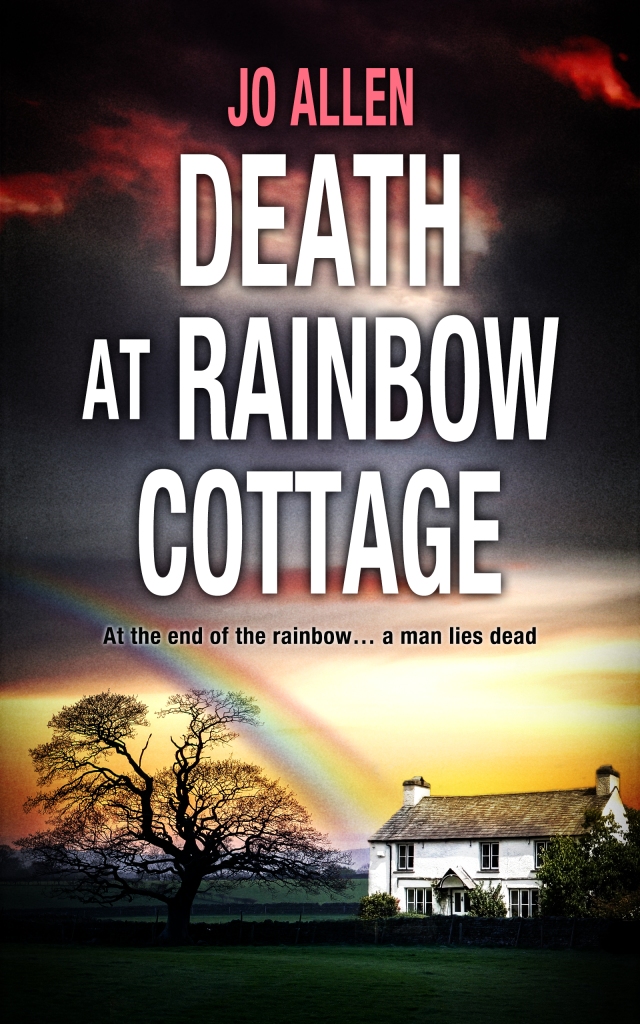Death on the Lake by Jo Allen
Rachel’s Random Resources Book Tours

r/suggestmeabook: I want to watch how detectives balance competing cases as well as their personal/work lives in the context of a well-crafted mystery.

Movie rating: PG-13
Pages: 392
Publisher: Self
Series: DCI Satterthwaite Mysteries
ARC provided by Rachel’s Random Resources
Contemporary traditional mystery
From the publisher: When a young woman, Summer Raine, is found drowned, apparently accidentally, after an afternoon spent drinking on a boat on Ullswater, DCI Jude Satterthwaite is deeply concerned — more so when his boss refuses to let him investigate the matter any further to avoid compromising a fraud case.
This is the sixth of Jo Allen’s DCI Satterthwaite Mysteries, and the second I’ve read, and she does not disappoint—this one is just as good as the last one I reviewed, Death at Rainbow Cottage. Allen has a talent for keeping you guessing, and, just like last time, I was constantly sure I had the riddle solved and then realized, nope, I hadn’t. In this case, there was one key fact that wasn’t disclosed that would have made the difference, but I’m okay with that, as that disclosure also would have made the whole thing rather obvious (or at least it seems that way to me in retrospect).
Shared secrets allowed you to love someone for what they were, just as confession cleared your conscience.
Jo Allen, Death on the Lake
I particularly enjoyed that Allen talked about the use of resources in this book, something I don’t know I’ve ever seen before. My retired cop husband’s constant bitch about TV shows involving police investigation (and one of many, many reasons we don’t watch them) is that they act like the full resources of the police are available for every case, and that every department has all of the latest scientific testing available. So having the prickly Detective Superintendent Faye Scanlon set some very difficult parameters for DCI Jude Satterthwaite’s investigation of Summer Raine’s death was quite rewarding.
Thirty-six years of insatiable curiosity had matured into a store of rock-solid local knowledge.
Jo Allen, Death on the Lake
I also really like the way Allen is investigating the romantic relationships of the recurring characters. Ashleigh and Jude are so much more honest about their relationship than most people are, and both understand how much a career in law enforcement complicates everything, particularly in a situation like theirs, where overtime is expected and required.
But he knew and she knew he knew, and the resulting tension was always there between them.
Jo Allen, Death on the Lake
Another lovely feature was grappling with the relative importance of various crimes. Police officers have a great deal of discretion, so when is it appropriate to bust someone for marijuana and when should you let it go? Which is worse, murder or money-laundering/fraud? Satterthwaite comes down firmly on the side that murder is worse, but money-laundering/fraud can, depending on the particular scam, ruin far more lives than a single murder, so which really is more important to stop? (If you’ve read anything on recidivism, you’ll know that most studies show that murderers tend to have a lower recidivism rate; my old criminal law prof joked it was because “you only have one mother-in-law.”)
There must have been a reason why everyone disliked him, but for all that he was her family.
Jo Allen, Death on the Lake
And then there are the characters who are around (presumably) for just this installment. The family at the center of the murder, fraud, and money-laundering questions, the Neilsons, are fascinating: a young wife trying to help raise privileged-as-hell twins of 18 with an oft-absent wealthy husband who came from the area and made his fortune after leaving. There are so many levels to explore in this family, and Allen does a good job of covering the waterfront.
It was rare she coveted anything, but the Neilsons’ summer mansion brought out the worst in her.
Jo Allen, Death on the Lake
And then there’s the setting. More so than the last book, the Lake District’s geography comes into play in this novel. I took some time to look at some of the landmarks Allen discusses in the book, and the difficulties the lay of the land create for observation and security become quite obvious.
Because fear, like loyalty and friendship, made you do terrible, terrible things.
Jo Allen, Death on the Lake
All-in-all, Death on the Lake is a triumphant installment of this engaging murder mystery series, marked both for the clever puzzle and the layers of depth in its treatment of the crimes and characters.







